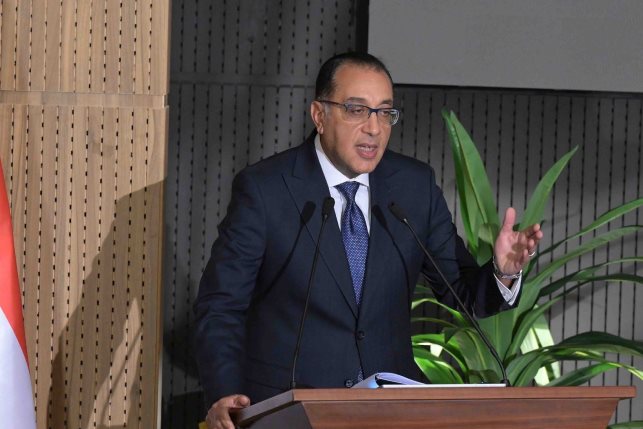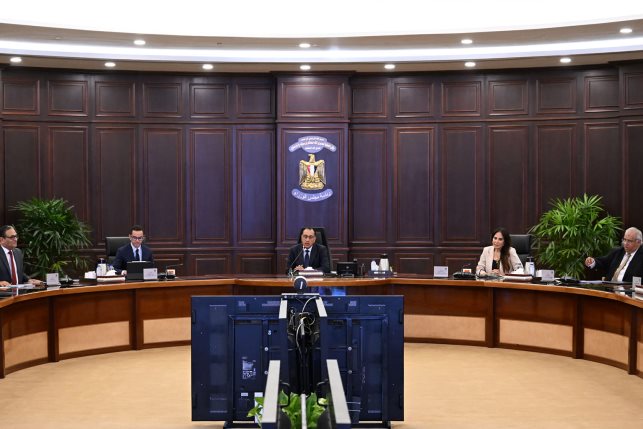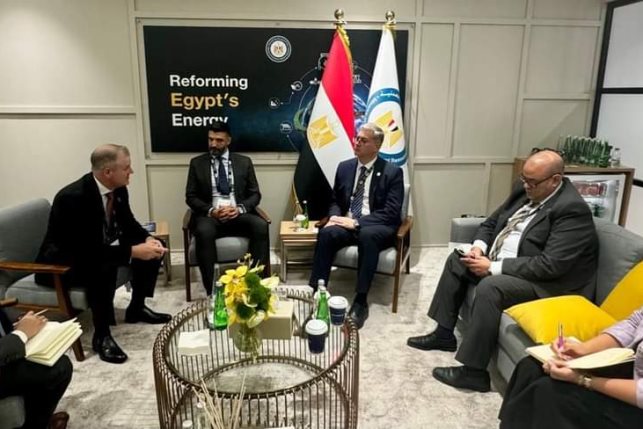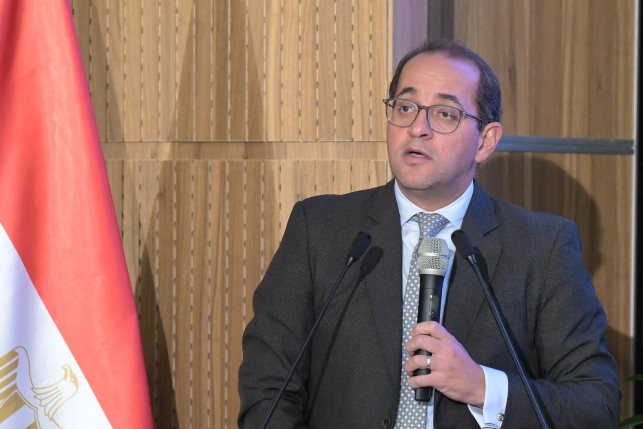Egypt's Prime Minister Unveils Game-Changing Economic Insights from OECD Report
Egyptian Prime Minister Mostafa Madbouly and ministers convened to discuss the inaugural economic report by OECD.
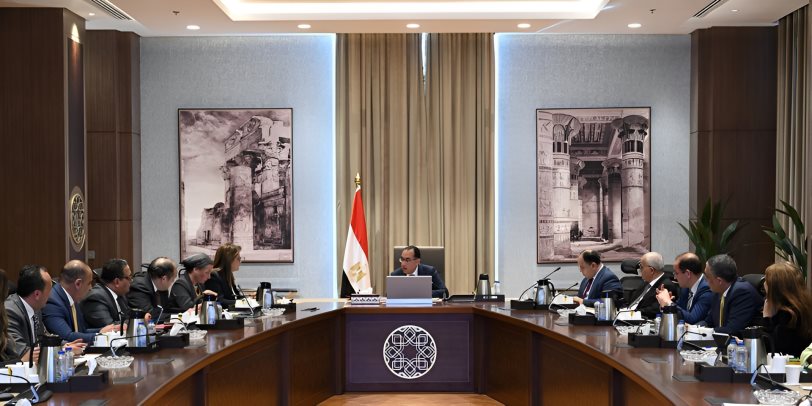 PRESS | Prime Minister Mustafa Madbouly chairs a meeting to review Egypt's economic progress and reforms in collaboration with OECD
PRESS | Prime Minister Mustafa Madbouly chairs a meeting to review Egypt's economic progress and reforms in collaboration with OECD
Prime Minister Dr. Mostafa Madbouly has reviewed the results of the Organization for Economic Cooperation and Development's (OECD) report on Egypt for the first time, within the activities of the joint program between Egypt and the international organization.
This came during a meeting chaired by the Prime Minister at the government headquarters in the New Administrative Capital, in the presence of Ministers of Planning and Economic Development Dr. Hala El Said, Finance Dr. Mohamed Maait, Environment Dr. Yasmine Fouad, Education Dr. Rania Hegazy, Trade and Industry Eng. Ahmed Samir, in addition to Deputy Minister of Finance for Financial Policies Ahmed Kouchouk, Deputy Minister of Planning for Planning Affairs Dr. Ahmed Kamali, CEO of the General Authority for Investment Hassam Heiba, Vice Governor of the Central Bank Menna Fareed, and Director of the Qatar Program Unit at the Ministry of Planning Dr. Heba Youssef, and officials from the relevant ministries and entities.
At the beginning of the meeting, Dr. Hala El Said pointed out that Egypt signed the Qatari program with the OECD, noting that signing this program is a very important step, especially since the international organization cooperates with the Egyptian government in a number of reform programs and projects... In this context, she reviewed the joint cooperation projects between the organization and the relevant ministries.
The official spokesperson for the Prime Minister's Office, Counselor Mohamed El-Homsani, explained that the meeting reviewed the first economic report prepared for the first time by the organization for Egypt within the framework of the joint program signed between Egypt and the OECD.
He said, "The economic report for the Arab Republic of Egypt includes two main parts, the first part reviews the overall economic performance and mechanisms to enhance the efficiency of fiscal and monetary policies, while the second part focuses on key issues identified through consultations with the Egyptian government, in line with national priorities, represented in the general business environment and enhancing the investment climate, enhancing labor market efficiency, and mechanisms for creating decent employment opportunities."
He added that the preparation of the report started in September 2022, where the latest data and national efforts until December 2023 were monitored, indicating that the report presents recommendations on effective policies that support the implementation efforts of the national program for structural reforms in line with Egypt's Vision 2030.
He noted that the report provides an opportunity to assess Egypt's status and performance in economic axes compared to other countries in the region and OECD member states, in order to identify strengths and weaknesses and formulate appropriate policies to overcome economic challenges, explaining that the report concluded that Egypt has maintained growth levels better than neighboring countries in the face of a series of major external shocks.
He also explained that the report consists of three chapters that align with the priorities of the Egyptian state, especially the national program for structural reforms, and that it provides 60 recommendations within those axes.
Regarding the results of the report regarding achieving overall economic stability, Counselor El-Homsani said, "It was noted that in terms of fiscal policies, the Egyptian government succeeded in reducing the share of energy subsidies, as energy subsidies decreased from 10.1% of total public spending during the fiscal year 2014-2015 to 5.8% during the fiscal year 2022-2023"... He added that the report clarified that public investment witnessed a significant increase driven by the rise in infrastructure investments, especially in road networks.
As for the transition to the green economy, Counselor Mohamed El-Homsani said, "The report results included confirmation that the green transition is an economic, social, and health necessity for Egypt, especially since Egypt is one of the most vulnerable countries to climate change hazards."
He added that the report addressed ways to make progress in the business environment and improve the investment climate in Egypt, including improving competitiveness, facilitating regulatory and legislative procedures, facilitating licensing procedures, enhancing methods of attracting foreign direct investment, facilitating access to financing, and supporting digital transformation efforts, explaining that the report results regarding enhancing labor market efficiency and creating decent employment opportunities include ways to provide decent employment opportunities and build on efforts to reduce unemployment rates.
Regarding social protection programs, the report pointed out that Egypt provides a variety of non-contributory allowances, such as ration cards, in addition to targeted programs, such as "Takaful and Karama," and the report also addressed the support for bread and ration cards, which contribute to reducing the poverty rate by about 10% and 8%, respectively, as the Takaful and Karama program worked on reducing the poverty rate by about 9%.
He explained that the axes of the Qatari program include 35 projects in the fields of sustainable development, enhancing statistics, governance and combating corruption, innovation and digital transformation, comprehensive and sustainable economic growth.
He pointed out that within the framework of monitoring various projects of the Qatari program, a comprehensive electronic monitoring platform has been established through which 23 national partner agencies participate, as the platform provides the most important executive steps and the expected results of each project, and progress rates in various projects are documented, and national participation in various specialized committees in cooperation with the organization is documented, and a digital archive of the program is provided that preserves all relevant reports.
During the meeting, a number of steps taken by several ministers to interact with the recommendations included in the report were reviewed, contributing to achieving a qualitative leap in various files.
El-Homsani pointed out that the Prime Minister stressed, at the end of the meeting, the necessity of studying the results and recommendations of the report prepared by the OECD carefully, and continuing to monitor the implementation of joint projects carried out in cooperation between the relevant ministries and the international organization.


